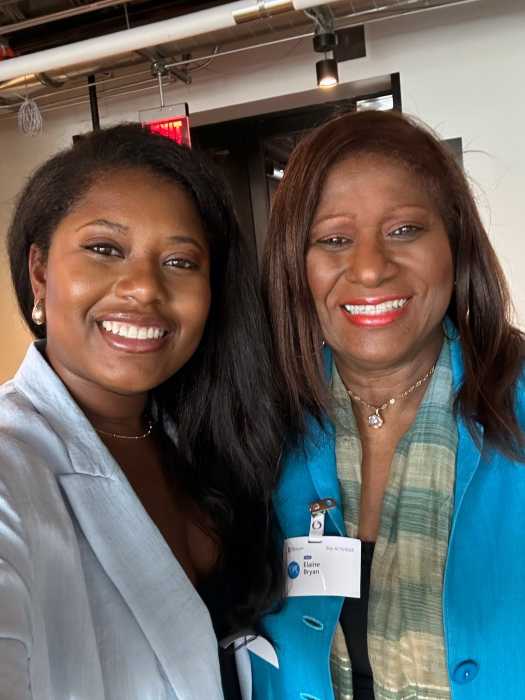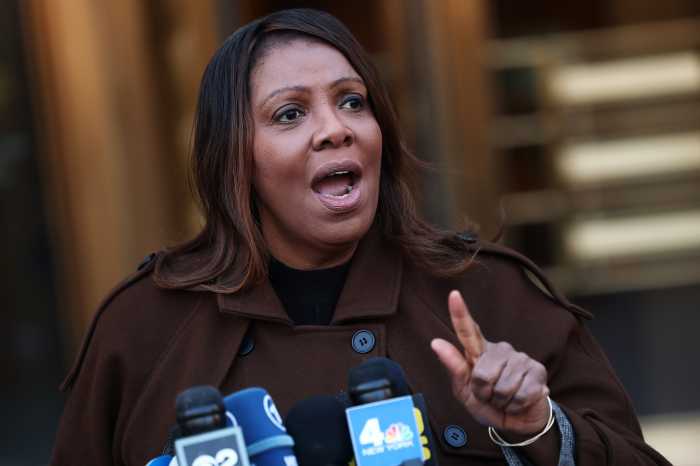A consultant with the London-based Caribbean Council says the Trump Administration’s new United States security policy raises difficult questions for the Caribbean.
Writing Sunday under the syndicated column, “The View from Europe,” David Jessop says that, by law, every U.S. President must publish a national security strategy.
The objective, he says, is to provide the highest-level guidance on the responses required by the country’s military, diplomatic, and executive branches to real or perceived threats.
Last Tuesday, following a speech by Trump outlining his approach to national security, Jessop noted that the White House released a 53-three-page document setting out how his administration intends putting “America First” in the world.
Jessop says the strategy paper paints a bleak picture, seeing all states as being in a “relentless competition for power and influence.”
The U.S., the strategy argues, according to Jessop, has been “weak and must now become engaged in a determined struggle to restore the unipolarity it achieved when it won the Cold War.”
The strategy “all but rejects interdependence and multilateralism, suggesting that what happens in the world today is a zero-sum game in which only by advancing U.S. principles will prosperity spread around the globe,” according to Jessop.
He noted that the document has some broad themes: “America First” will be the “foundation of U.S. leadership in the world through outcomes, not ideology,” a policy described as “principled realism”; China and Russia want to ‘shape a world antithetical to our interests and values’, and are perceived to be challenging U.S. power, influence and interests; unless they and others adapt their thinking, the U.S. “will compete with all tools of national power to ensure that the regions of the world are not dominated by one power.”
Whether one accepts the underlying philosophy or the interpretation of history or not, Jessop says that the document has “potentially profound implications for any nation or government that sees the world differently.
“Although it contains some positive language, for instance on organized crime, corrupt officials, terrorism, and engaging the private sector in development, it suggests that a divide is likely to emerge between the U.S. and the Caribbean if Washington decides to deploy its world view in a regional context,” he writes.
“Any reading of the whole document suggests numerous points of divergence,” he adds. “The most obvious relates to China, which over the last decade has become for almost all nations in the region an important investor, trade partner, and advocate of issues of vital importance, most notably climate change.”
Jessop says the section of the new US strategy paper on the Western Hemisphere “could not be clearer.”
That section says “competitors have found operating space in the hemisphere. China seeks to pull the region into its orbit through state-led investments and loans.”
The document criticizes both Cuba and Venezuela, and Russia and China’s relationship with both, noting that the US “will isolate governments that refuse to act as responsible partners in advancing hemispheric peace and prosperity.”
The section, according to Jessop, indicates that, together with Canada, the U.S. will deliver in the Western hemisphere a policy that “limits the malign influence of non-hemispheric forces,” while, as in the past, working to increase economic opportunities for all, improving governance, and reducing the power of criminal organizations.
“Whether Canada sees the region in this way — what this means for example, for Grenada’s reported request to China’s Development Bank to help draft a national development strategy; how U.S. policy will in the future relate to the Caribbean’s special relationship with Cuba, enshrined in the recent declaration at a CARICOM-Cuba summit in Antigua; or how it might relate to the possible rescue of Venezuela’s mismanaged oil sector by Russia Rosneft — are just some examples of the practical issues the region is going to have to reconcile in its dialogue with Washington,” Jessop writes.
“More importantly still, the region is going to have to take a position on what the document totally fails to mention: the existential issue of climate change,” he adds. “Not only does the strategy paper fail to recognize global warming, vulnerability, or smallness, it suggests that U.S. interests in future, in relation to natural disasters, will solely relate to building resilience at a domestic level while for others placing emphasis on the export of fossil fuels and renewable technology.”
Elsewhere, Jessop says the document introduces new conditionalities.
“When it comes to future US development assistance this ‘must support America’s national interests’, contains potentially contentious language in its qualified support for multilateral institutions, and more generally suggests that the US will respond negatively to those nations that do not support its foreign policy,” he says.
For the Caribbean, this will likely pose a conundrum, Jessop says.
“Smallness, the importance of the U.S. and a trade and investment partner, its physical location, its good relations with neighbors and others that the U.S. now sees as an unwelcome influence, and CARICOM’s renewed drive for a rapid multilateral response to climate change, all suggest that future relations with Washington may become difficult,” he says.
“What now seems to be an offer is far from the approach taken by the Obama administration foreign policy, which had healed many hemispheric rifts,” he adds. “If followed through on, the Trump doctrine will be divisive and significantly less in the interests of the region and its desire for a joined up global approach to its future development.”
The Caribbean Council is a long-established trade and investment consultancy and membership organization, specialized in providing advisory services to companies, trade associations, governments, public sector organizations, and regional organizations.
Through its activities, the Caribbean Council said it supports responsible private-sector led investment and development in the Caribbean, Cuba and Central America.
The former managing director of the Caribbean Council, Jessop says he has worked on Caribbean issues for over 40 years and continues to speak and write on Caribbean issues.
He is the editor of our “Caribbean Insight” and “Cuba Briefing” publications.
Jessop is also a member of the Board of Trustees of Caribbean Central American Action (CCAA) in Washington, D.C. and the Caribbean Hotel and Tourism Association (CHTA).

























